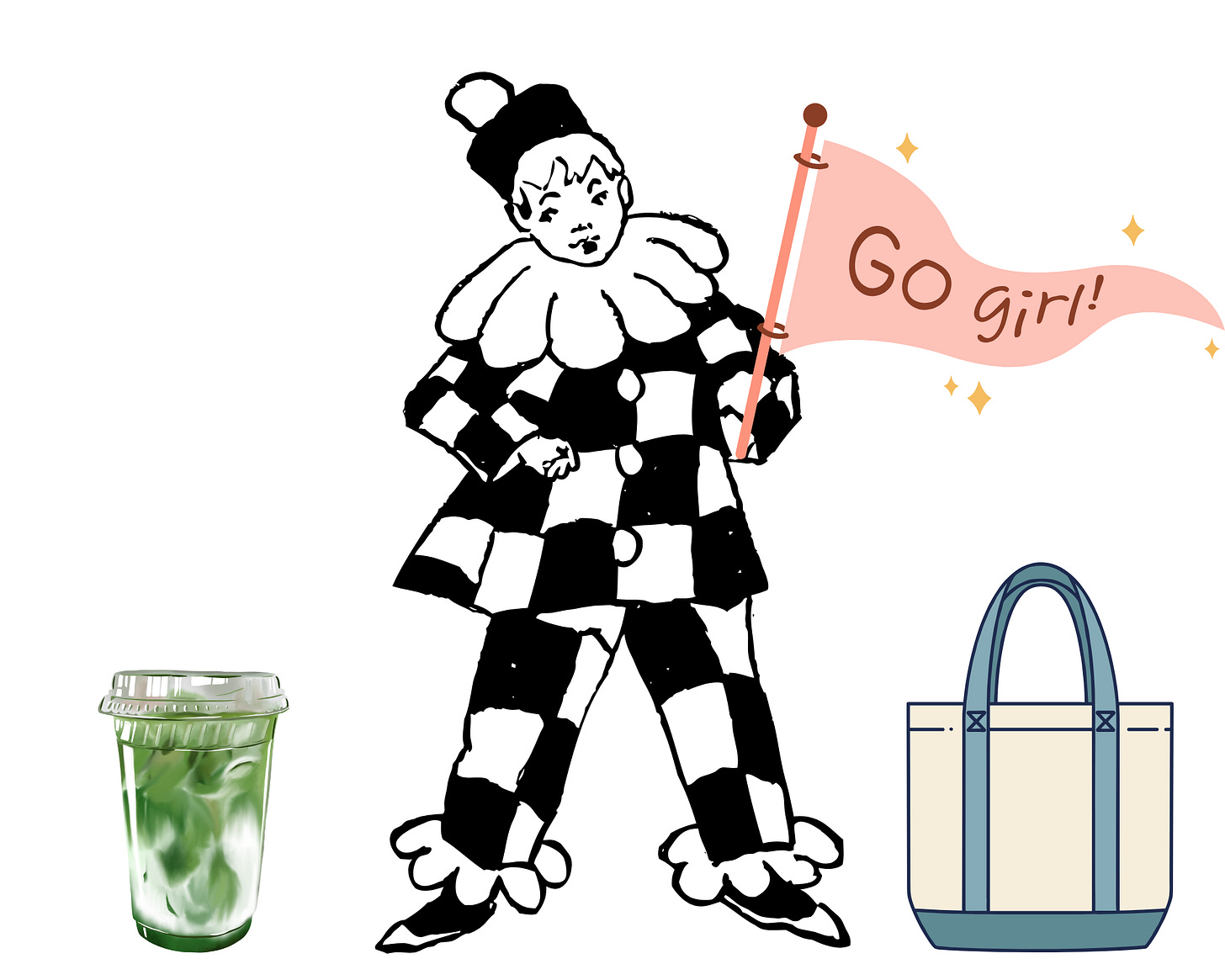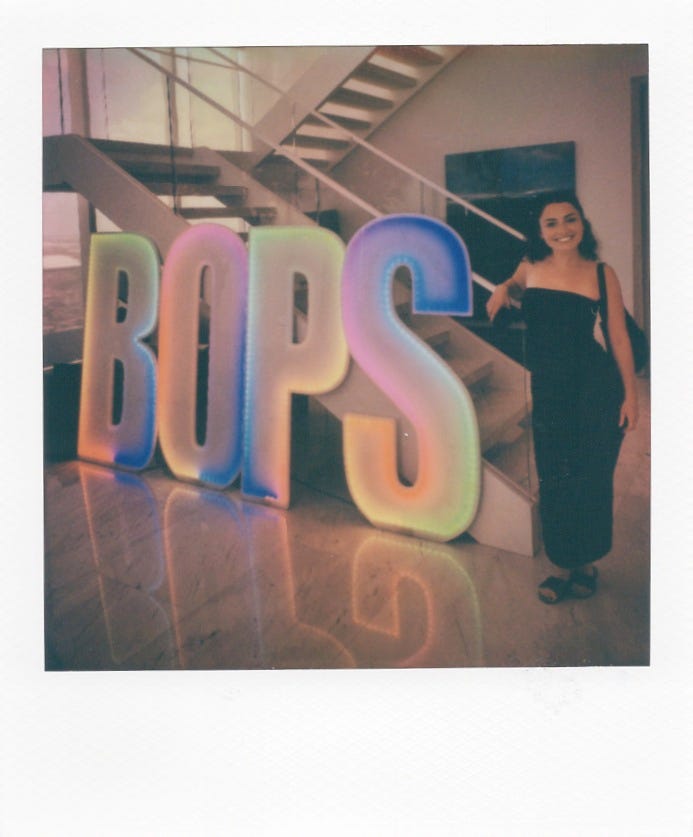Who Is Allowed to "Perform" Gender and Identity?
thoughts on the "Performative Male," and the abundance of women dressing as literal clowns on dating apps
Hello and welcome to Many Such Cases.
I didn’t intend to take a “break,” nor did I enjoy any sense of relaxation or ease one typically associates with a “break,” but nevertheless I have been absent for much of the last month. How very European of me! We are working to wrap the forthcoming issue of PLAYBOY (due out in November, and available to pre-order here), and that has been much of my focus lately. I am thrilled about what we’ve put together. From me, you can expect a profile of a certain controversial online sexual figure, as well as a feature about my afternoon at the infamous Bop House. And likely more! I actually really need to be working on those right now.
But there’s a lot I could discuss this week!
The general theme of our sexual culture this summer has broadly been desperate pleading disguised as apathy. From the various “Tea” apps to AI boyfriends to how people are presenting themselves on their dating profiles, there’s a shared sense of “Why the hell do I bother with trying to find a real partner at all?”
One particular example of how this manifests on Tinder, Hinge, Bumble etc is an increase in women with pictures of themselves in clown paint on their profiles. Among their usual selfies, group friend pictures and other photos that they’ve selected to demonstrate their best selves, many women have chosen to also include a photo of themselves wearing literal clown makeup. A young man using the apps sent me a DM on X to discuss this, and sent me over 40 examples of women he’s encountered doing this.
Notably, most of the women are portraying themselves as sexy clowns. They’re not doing full Bozo cosplays — more so a coquette Pierrot. Some are clearly in a Halloween costume, while others appear to be wearing clown makeup for no real reason at all. Often, it’s only really the eye makeup that enters it into clown territory, but nevertheless, the signifier of “clown” is present.
What are these women trying to say about themselves? First is likely the suggestion that they are creative, alternative people. They are women who experiment with their appearance and aren’t afraid of the gaze that might accompany that experimentation. It suggests they are people who shirk the mainstream, using the clown to represent their liminal or marginal position in the culture. On a dating app, this helps promote that they are likely looking for a certain type of partner, one who aligns with this identity. But I think that the clown makeup also suggests something specific to their attitude toward dating: can a girl who makes herself into a clown really take any of this too seriously?
These women are making themselves clowns before the indignities of the dating world does it for them. By showing themselves as clowns, they’re saying that they won’t let themselves be embarrassed. For some, this itself may be a show of vulnerability — they already feel silly for being here, for subjecting themselves to the possibility for disappointment. And so by being a clown, they’re protected from further shame.





